However, the biggest weakness of the current Vietnamese workforce is its limited expertise and skills, which do not meet the requirements of the digital economy .
This is the content presented at the workshop "Human resource development - a prerequisite for digital economy and green growth" organized by the Vietnam General Confederation of Labor in coordination with the Vietnam Chamber of Commerce and Industry (VCCI) and Lao Dong newspaper.

Speaking at the workshop, Ms. Phan Thu Thuy - Deputy Editor-in-Chief of Lao Dong newspaper said that the global economy is entering a period of profound transformation. Countries are promoting "dual transformation" - both digital transformation to improve productivity and efficiency, and green growth for sustainable development and adaptation to climate change.
Vietnam is also actively integrating into that trend, considering this an inevitable path to improve competitiveness and comprehensive socio-economic development.
This process requires a shift from breadth to depth of growth, from resource exploitation to value creation, from linear consumption to circular economy.
These orientations have been clearly affirmed in Resolution No. 57-NQ/TW dated December 22, 2024 of the Politburo on breakthroughs in science, technology, innovation and national digital transformation; and Resolution No. 68-NQ/TW dated May 4, 2025 of the Politburo on private economic development.
“The workshop is an opportunity for policy makers, employers, trade unions, businesses and experts to discuss, share experiences and propose feasible solutions to narrow the gap between policy and action,” said Ms. Phan Thu Thuy.

At the workshop, Mr. Nguyen Khanh Long, Deputy Director of the Department of Employment (Ministry of Home Affairs) said that the National Green Growth Strategy was approved by the Prime Minister in Decision No. 1658/QD-TTg dated October 1, 2021. In particular, the renewable energy ecosystem, organic agriculture, and low-carbon logistics are opening up new career directions.
However, a recent report by the ADB and the International Labor Organization (ILO) shows that Vietnam is facing a serious shortage of workers trained in green skills, especially in small and medium-sized enterprises. This requires urgent investment in retraining and specialized training according to green transformation needs, along with an inclusive employment policy.
Sharing the same view, Mr. Pham Vu Quoc Binh, Deputy Director of the Department of Vocational Education and Continuing Education (Ministry of Education and Training) commented: Human resources for digital transformation are lacking in both quantity and quality. According to statistics, the rate of trained workers with degrees and certificates is 29.1% of the workforce.
Regarding high-tech human resources, Vietnam currently has about 500,000 workers in the IT sector, but the actual demand will be up to 2 million people by 2030, especially lacking human resources in fields such as artificial intelligence, big data analysis, cybersecurity and the Internet of Things.
“In terms of sectoral distribution, digitally skilled workers are mainly concentrated in large cities and in the service sector, while agriculture and manufacturing – two pillars of the economy – have not yet been fully digitized. This creates an imbalance in development and limits the ability to fully exploit the potential of digital transformation,” said Mr. Binh.
According to Mr. Binh, Vietnam has committed to achieving carbon neutrality by 2050 and is promoting green economic development. However, human resources serving green growth have not met actual requirements.
In terms of scale, the workforce in green economic sectors currently accounts for only about 3-5% of the total workforce, mainly concentrated in organic agriculture and renewable energy.
Meanwhile, many workers do not have enough understanding of the importance of green growth and are not equipped with the necessary skills to transition to green jobs.

Faced with this reality, experts, managers and businesses have made recommendations and solutions to develop human resources in accordance with the new requirements of the economy.
Thereby, affirming the role of workers is not only as the implementer but also as the force creating value and driving force for sustainable development in the future.
From the perspective of protecting workers’ rights, Ms. Thai Thu Xuong, Permanent Vice President of the Vietnam General Confederation of Labor, affirmed: “Investing in workers today is the biggest way to save for the future. We cannot talk about green growth or digital transformation without simultaneously changing the way we perceive, treat and invest in human resources.”
From the discussion sessions, the workshop unanimously recommended three urgent directions of action: At the policy level: It is necessary to promptly complete the Project "Human resource development strategy to 2030, vision to 2050", in which human resource development is closely linked with digital transformation and green growth; at the same time, build a national database on digital and green human resources to serve policy making.
On the business side, it is necessary to consider long-term and systematic investment in internal training as a business strategy; at the same time, invest more in training quality, link skill upgrading with career paths, optimize training time in line with the technological innovation process, helping workers not to fall behind.
For the Trade Union organization, promote the role of a bridge, proactively inform about training needs and bring skills training programs to the grassroots level, ensuring that all labor groups have equal access to learning opportunities and improve their qualifications.
Source: https://baovanhoa.vn/nhip-song-so/nguon-nhan-luc-chuyen-doi-so-con-han-che-ve-so-luong-va-chat-luong-160578.html




![[Photo] Experience at the Exhibition of 80 years of national achievements - Meaningful activity for new students](https://vphoto.vietnam.vn/thumb/1200x675/vietnam/resource/IMAGE/2025/9/10/286061b79abb4afa8961d730c9833cdd)
![[Photo] Close-up of 3,790 resettlement apartments in Thu Thiem to continue auction](https://vphoto.vietnam.vn/thumb/1200x675/vietnam/resource/IMAGE/2025/9/10/be974e2058f74c9c8dc1f400124f3653)



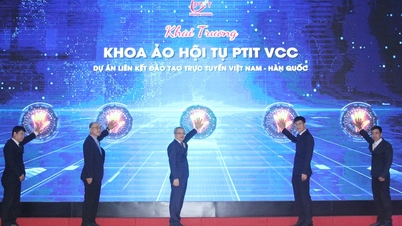














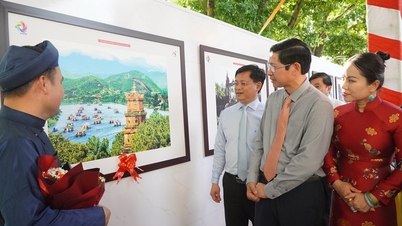






























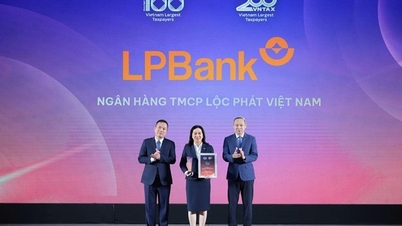
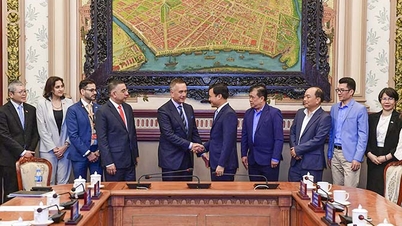
















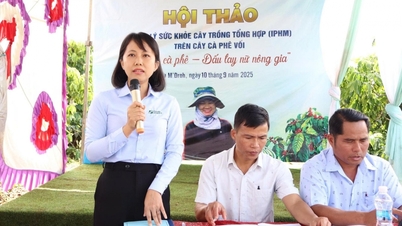









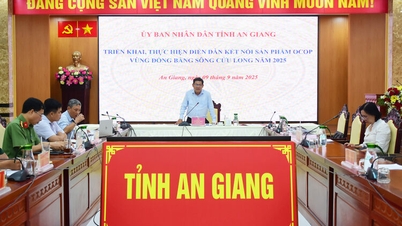











Comment (0)